History of Penthouse Magazine's 1969 American Launch
Though it began in London in 1965, the first American issue in 1969 launched Bob Guccione's empire and eventually became publishing giant General Media.
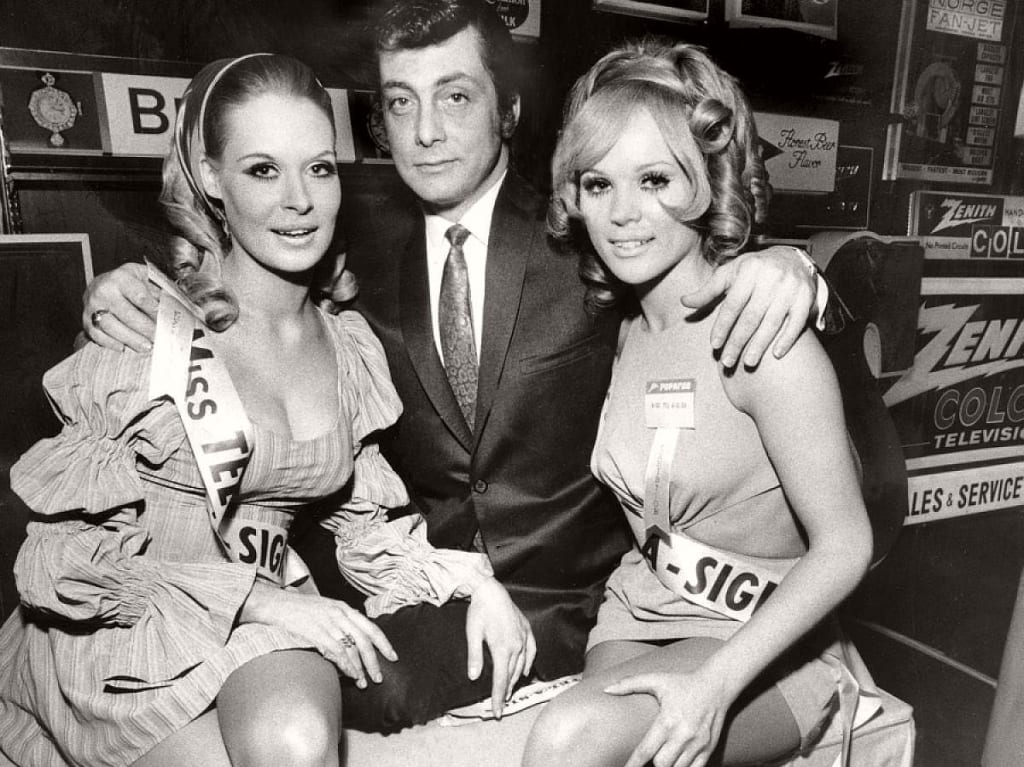
Penthouse began publication as a British magazine, founded on a shoestring in London in 1965 by Bob Guccione, a relatively unknown American artist with no publishing experience. With the assistance of a small, but willing staff, he was able to go against traditional England and, after a controversial beginning, make Penthouse the largest selling quality men's magazine in the history of British publishing.
With European success under his belt, Guccione decided to challenge the American counterpart of Penthouse, and in September, 1969, published the first edition of Penthouse in the United States. It was received enthusiastically by American males, who were eager to adopt what the publisher called the Penthouse philosophy.
It was a different society in America in 1969, from even a decade earlier; traditional Puritan attitudes were being ignored, in light of the sexual and social revolutions that began in the early Sixties and were ongoing. There was a new morality developing, and the intellectual elements of American society were supporting it.
The first American edition included many talented contributors, such as humorist Henry Morgan, investigator Jim Phelan, British novelist Frederic Mullally, expatriate author Rory Harrity, and the esteemed president of the University of Notre Dame, Father Hesburgh.
Father Hesburgh - President of the University of Notre Dame
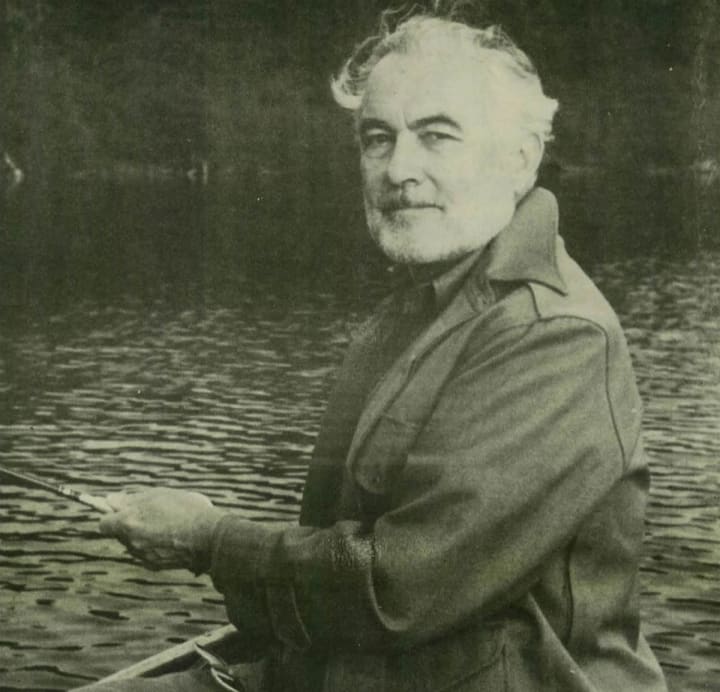
One of the original members of the US Civil Rights Commission in 1957, Father Hesburgh conducted a Penthouse symposium in the issue on The Campus Convulsion, with the assistance of two students from Columbia University, Paul Spike and John C. Meyer. Spike argued for the radical students, while Meyer discussed the student behavior that he thought had defeated the leftist movement at Columbia.
In an exclusive Penthouse Interview, investigative reporter Jim Phelan spoke with Clay Shaw, the director of the International Trade Mart in New Orleans, who had been charged with conspiracy by District Attorney Jim Garrison for having plotted the assassination of President John F. Kennedy in conjunction with Lee Harvey Oswald and David Ferrie. Denying that he knew the two men, Shaw was unanimously acquitted of the charges by a jury earlier in 1969, but recently had been charged with perjury by Garrison, in a political ploy, just days before Garrison decided to run for a third term as D.A.
That first September Penthouse also contained photographs of beautiful girls; commentary and reviews in "View from the Top;" a fable of our time, "The Amorous Armadillo," by Rory Harrity; Henry Morgan reporting on the explicitness of sex on the theatrical stage; several cartoons; and author Frederic Mullally's satirical series, "Oh Wicked Wanda," which would eventually develop into a cartoon strip.
Richard Nixon Quits
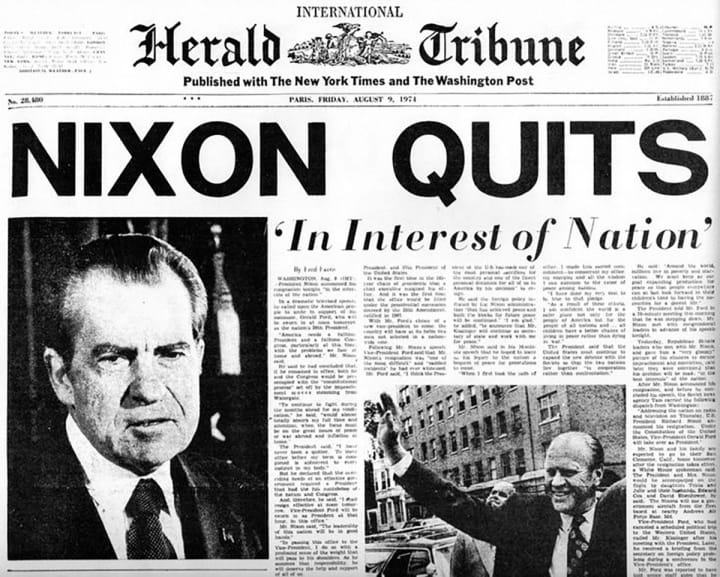
The year 1969 made its impact on history. On the twentieth of January, Richard Nixon began his ill-fated tenure as the 37th president of the United States. In February, National Guardsmen used tear gas on rioting students at the University of Wisconsin in Madison when they protested against the Vietnam War. In fact, there were demonstrations and student protests against the war throughout the United States during the entire year. By March 18th, President Nixon had ordered the secret bombing of bases in Cambodia. Also in March, James Earl Ray confessed and was sentenced to 99 years in prison for the murder of Dr. Martin Luther King, Jr., while in April, Sirhan Sirhan was found guilty for the slaying of Senator Robert F. Kennedy.
1969 Mets
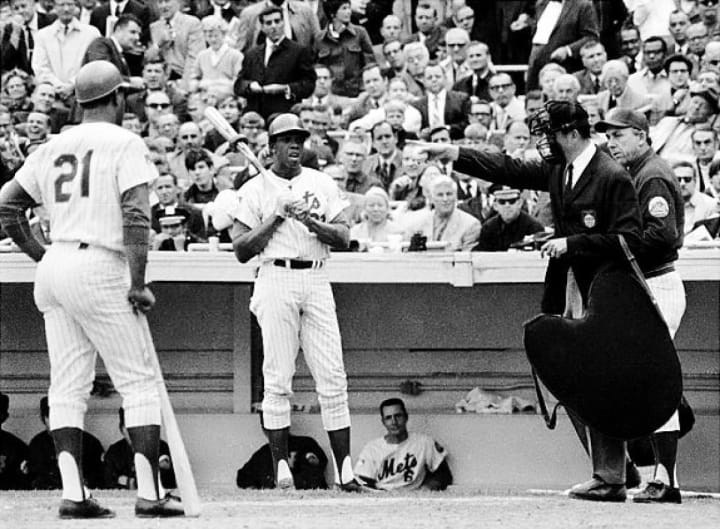
On the lighter side, that summer astronauts Neil Armstrong and Edwin Aldrin took a walk on the moon and almost half a million young people romped in the mud at the Woodstock festival in upstate New York. In October the New York Mets won the World Series 5-3 over the Baltimore Orioles. That same month, the second edition of Penthouse hit American news stands. The highlight of this issue was an exclusive interview with John and Yoko Lennon.
John and Yoko Lennon
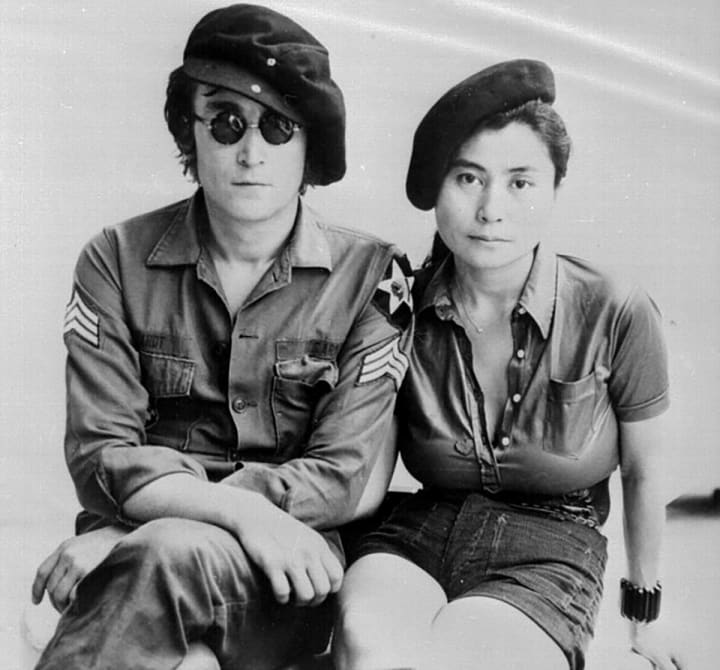
Reporter Charles Childs flew to Montreal to talk with John and Yoko Lennon about their plans to stage a lie-in in Japan in order to protest British economic policies and the English government's plans for a British week promotion in Tokyo. Lennon told Childs: "You know we got together, Yoko and I, two artists with two big egos, and we settled that problem and found that we had a common goal and our common goal is peace.”
The famed duo had been using lie-ins to communicate their message of "sex for peace." Lennon said, "The main hang up in the world today is hypocrisy and insecurity...If everyone practiced being themselves instead of pretending to be what they aren't, there would be peace.”
The October issue completed the two-part symposium on The Campus Convulsion with a contribution by the distinguished president of Brandeis University, Morris Abram, who represented the United States on the United Nations Commission of Human Rights and also was a member of the National Advisory Council on Economic Opportunity. He discussed Preserving Due Process in our colleges and universities and was balanced by the viewpoint of Black discontent on campuses, in Civilizing Americas Colleges, written by Carl Word, a student scholar and Ph.D. candidate in social psychology at the Princeton Graduate School. Robert H. Rimmer, author of the controversial best-selling novel, The Harrad Experiment, wrote a feature article for the third issue of Penthouse in November, 1969, in which he challenged youth to change the world by using the ultimate weapon - nudity. This was a theme that he first explored in his fictional Harrad College, but now he advocated a program for action.
The highlight of December, 1969, was the marriage of singer Tiny Tim, of "Tiptoe Through the Tulips" fame, to Miss Vicki in a ceremony on Johnny Carson's TV show, Tonight. The main attraction of this month's Penthouse was an expose of the strange facts behind the arrest of James Earl Ray for the murder of Dr. Martin Luther King, Jr. on April 4, 1968. It was written by London Publisher Peter Dawnay, who supported and published the conspiracy theories of Joachim Joesten, author of numerous books on the Dallas assassination of President John F. Kennedy in November, 1963. Through his own research, Dawnay had become knowledgeable on the mysteries surrounding both slayings. He concluded, "Thus it would seem that many of the characteristics of the murder of John F. Kennedy reappear in that of Martin Luther King, only this time without even the pretense of a proper investigation or a public statement of the prosecutor's case.”
It had been an interesting year, 1969, and a good one for Penthouse; Issue No. 1 (375,000 printed) had outsold the average recent issues of Life, Look, Time, Newsweek and Esquire. By the December edition, Penthouse had to print 500,000 copies and were storming what had been thought was an invincible fortress: their competitor's publication. Other bestsellers for 1969 had included books: The Godfather, The Love Machine, Portnoy's Complaint, The Andromeda Strain and The Peter Principle.
Hair, the rock musical that had started as an Off-Broadway production, became a phenomena of the musical theater world; the original cast album was the number one bestseller and the recording by the Fifth Dimension, "The Age of Aquarius / Let the Sun Shine In," was the No. 1 single for the year.
About the Creator
Frank White
New Yorker in his forties. His counsel is sought by many, offered to few. Traveled the world in search of answers, but found more questions.






Comments
There are no comments for this story
Be the first to respond and start the conversation.